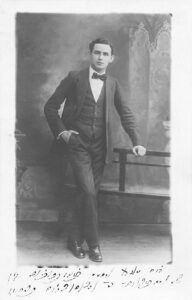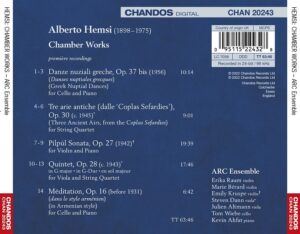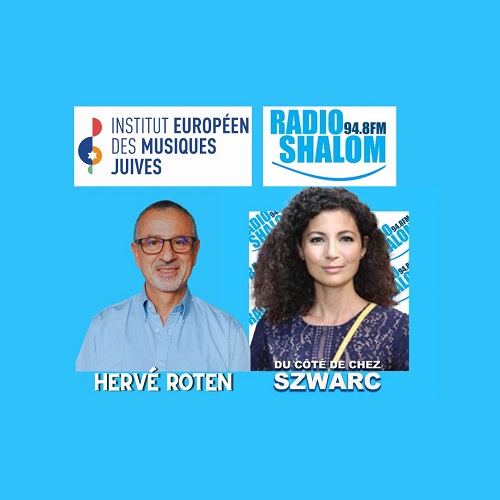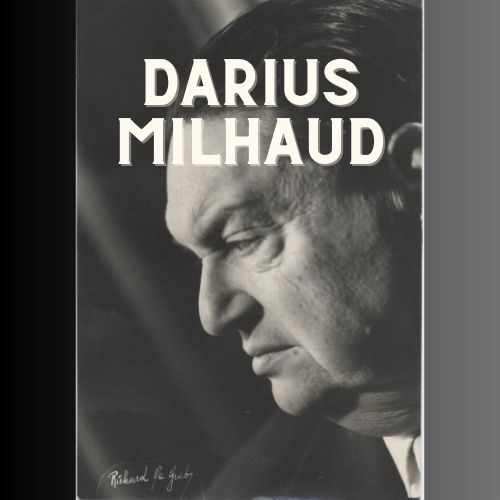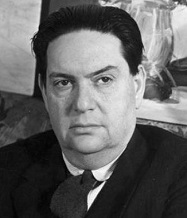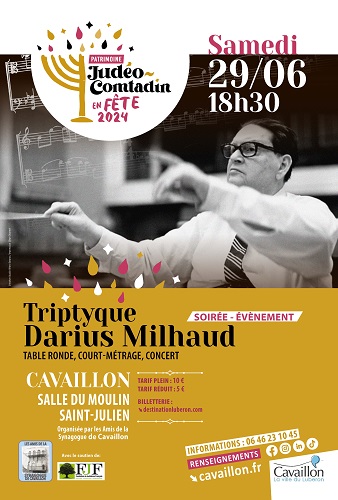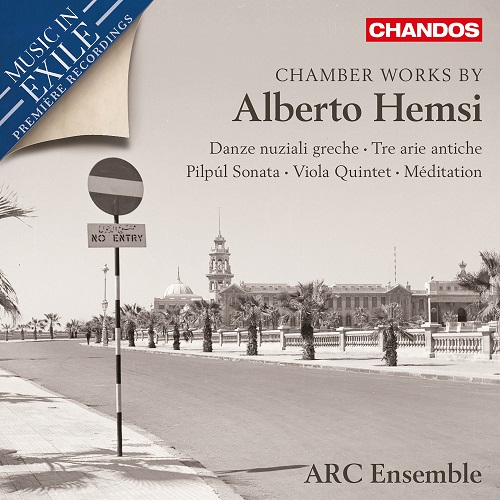
ARC Ensemble
Chandos Records Ltd, 2022
In July 2004, Myriam Capelluto Hemsi donated the entire musical archives of her husband, the Sephardic composer Alberto Hemsi (1898 – 1975), to the European Institute of Jewish Music. This collection notably contained 226 printed and handwritten scores by Alberto Hemsi, including many unpublished works, which are now available on the IEMJ catalog.
A significant part of Hemsi’s work is linked to Judeo-Spanish music, music that cradled his childhood in the former Ottoman Empire. After completing his musical studies in Milan (Italy) between 1913 and 1919, Hemsi undertook ethnographic and folkloric research upon his return to his native country, particularly among the old ladies and cantaderas, these semi-professional singers, renowned for their beautiful voices, whom families invited to sing at special events (weddings and other celebrations). He has collected and compiled 60 traditional Judeo-Spanish songs (Coplas Sefardies), to which he has added an original piano accompaniment which recalls the great pianist-composers of the beginning of the century – Enrique Granados, Isaac Albéniz and, in particular, Manuel de Falla and Maurice Ravel.
The Coplas Sefardies have been released in several phonographic editions since 1990 (with singers Mira Zakai, Pedro Aledo, Assaf Levitin, Tehila Nini Goldstein…), but until now Hemsi’s instrumental works have never been recorded. The ARC Ensemble of Toronto is remedying this oblivion with the release of the CD Chamber Works by Alberto Hemsi in October 2022. This CD, published by Chandos in the “Music in Exile” collection, presents a selection of five instrumental works by Hemsi, beautifully performed by Marie Bérard, Erika Raum and Emily Kruspe (violins), Steven Dann and Julien Altmann (violas), Tom Wiebe (cello) and Kevin Ahfat (piano).
Most of these works are given world premieres. For example, the Danze nuziali greche (Greek Nuptial Dances) for cello and piano, op. 37, likely the last piece Hemsi completed before moving to Paris, celebrates three wedding participants, mother-in-law, bride, and godfather. Dedicated to two Jewish philanthropists, the Tre Arie Antiche (dalle ‘Coplas Sefardies’) for String Quartet, op. 30, are transcriptions of three songs he had originally arranged with piano. The Pilpúl Sonata for Violin and Piano, op. 27, draws on ironic aspects of Talmudic argument, creating an absorbing work that incorporates elements of jazz and impressionism. In the Quintet for Viola and String Quartet, op. 28, Hemsi breaks from the use of Sephardic themes, and 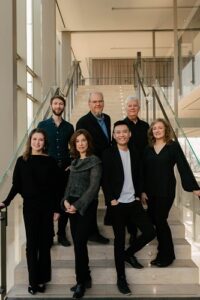
With the release of this album, the ARC Ensemble, already rewarded by several nominations to the Grammy Awards, realizes a master stroke which will make the listeners want to listen to Hemsi and the musicians to play it.
A splendid and indispensable record…
- More about the CD Chamber Works by Alberto Hemsi
- Discover the other CD from the serie Music in Exile
- Purchase sheet music by Alberto Hemsi on the EIJM’s online shop
- Purchase the CD Alberto Hemsi, Coplas sefardies, coll. Patrimoines Musicaux des Juifs de France, Edition de l’IEMJ, 2004.
- Listen to samples from the CD Alberto Hemsi, Coplas sefardies.
- Watch a video about Alberto Hemsi
- Find more about Alberto Hemsi on our YouTube channel
- Browse our archives on Alberto Hemsi
